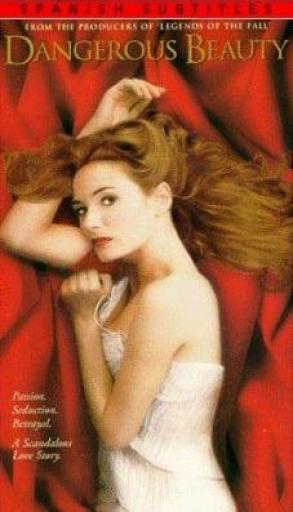Dangerous Beauty |
|||||||||
|---|---|---|---|---|---|---|---|---|---|
| Primary Creator |
|
||||||||
| Contributor(s) |
|
||||||||
| Properties |
|
||||||||
| Name of Work | Dangerous Beauty | ||||||||
| Production Date | 1998 | ||||||||
| Production Location |
|
||||||||
| Current Location |
|
||||||||
| Media Types | DVD | ||||||||
| General Notes | Based on an academic biography called the "Honest Courtesan" by Margaret Rosenthal. | ||||||||
Description
Presumed to be the true story of Veronica Franco, a famous courtesan (high-end prostitute) who was a published poetess. She went into the courtesan business because in Venice of that time you either were an object owned by your husband, and were obedient, shallow, ignorant, etc. -- or you could become educated if you became a courtesan. She went the latter route because her mother helped her (having been one herself). She spent much time learning literature and all about physical love, and all the tricks of the trade. She became a master of it, as well as prized for her wit and intelligence. She saved Venice by sexually satisfying the King of England. Then she was denounced as a whore by the Inquisition and put on trial, and her eloquent speech in her moral defense is one of the great speeches of the cinema.
Theme
1. The importance of accepting your own rules for living, your own morality.
2. The grim metaphysical conflict for a Venetian woman of being a slave to a husband or a free woman requiring sexual work.
Emotional Sum or Sense-of-life
The world is a horrible split of conventional marital morality vs. honest but promiscuous morality. The way to live requires one sacrifice one's body for one's soul.
Context Information
Tags
Courtesan, Venice
